Asus ROG Strix GL503VD Gaming Laptop Review
Why you can trust Tom's Hardware
Price Analysis & Conclusion
There isn't anything spectacular about the Asus ROG Strix GL503VD, at least not at first glance. If you're in the market for a gaming laptop with great value or performance, then the Strix isn't for you. This laptop is for casual gamers and multimedia power users looking for an attractive laptop with great build quality with the added bonus of playing low-intensity games.
A primary criticism of the Strix is its rather mediocre performance on synthetic tests, especially when compared to some of its cheaper alternatives. For example, while the Strix's Core i7 helped it maintain steady 3DMark Physics scores similar to that of the Acer Predator Helios 300 and the Sager NP6852, its GTX 1050 lacked matching punch, thus resulting in lower GPU-reliant scores than the Dell Inspiron 15 Gaming 7000, a cheaper laptop. Additionally, the Strix's storage speeds are simply subpar in comparison to the SSDs that the rest of the laptops in our comparison come with standard. The trade-off, of course, is additional storage space; competing laptops will run out of storage much sooner, prompting an inevitable upgrade.
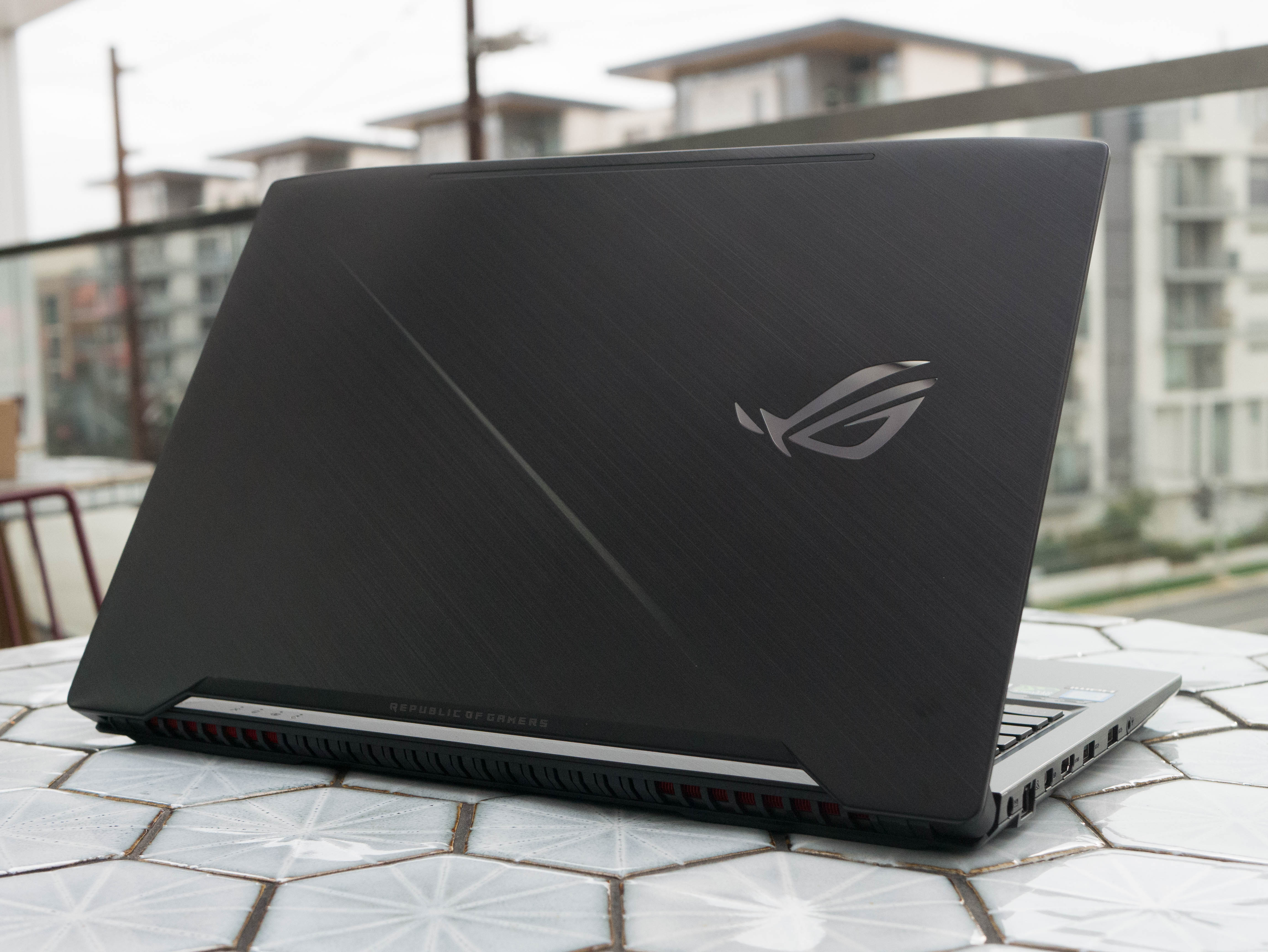
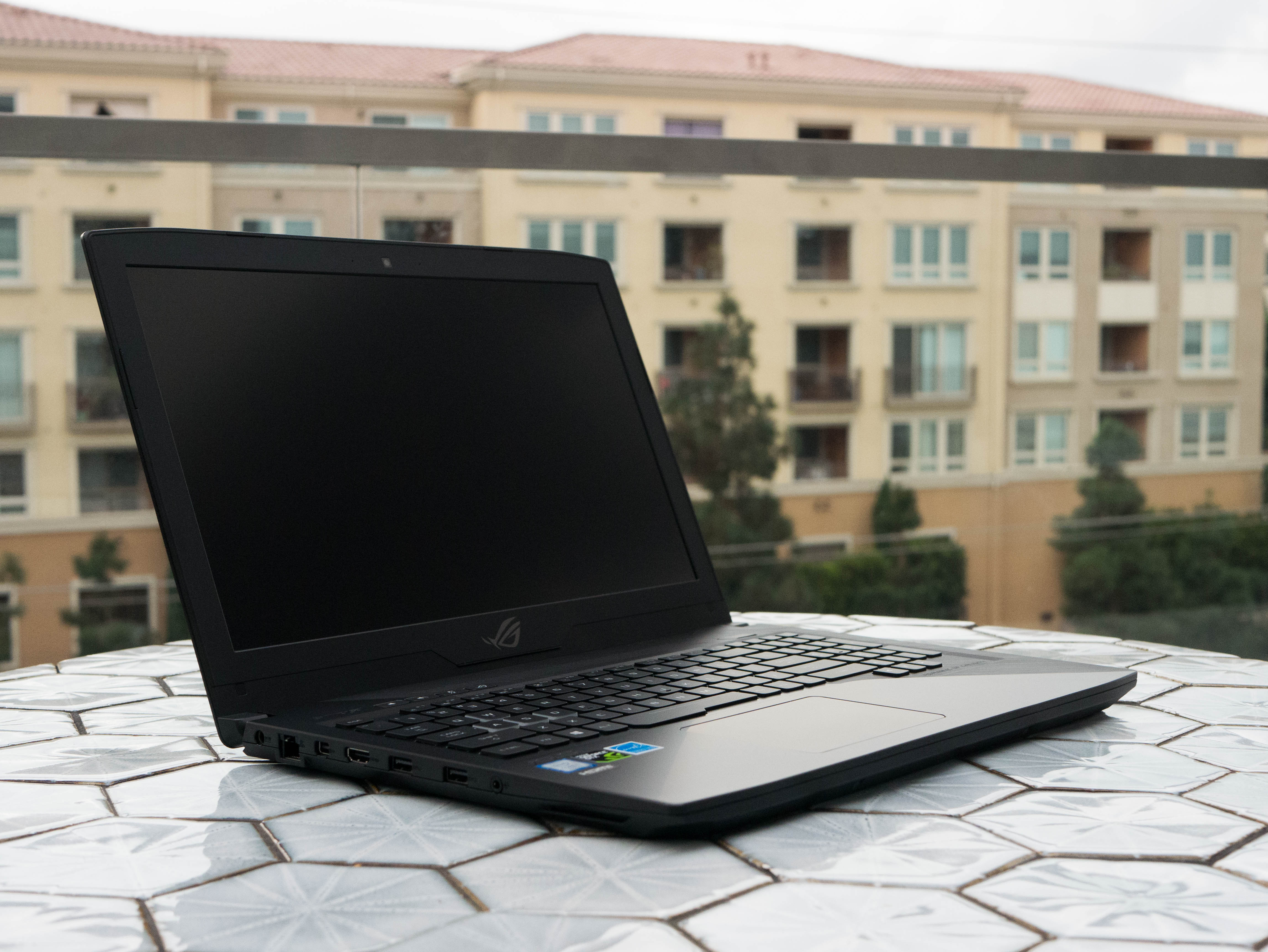
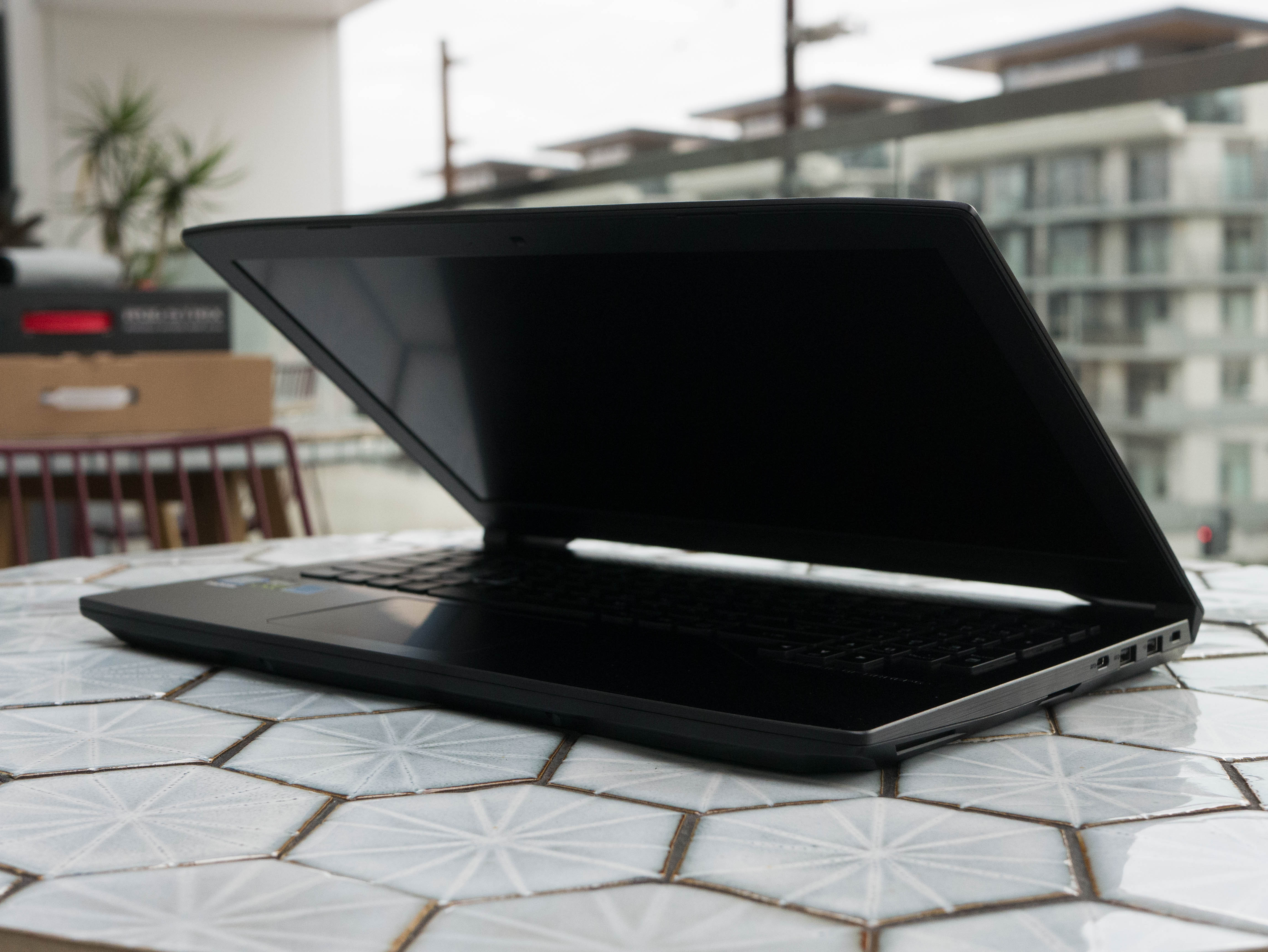
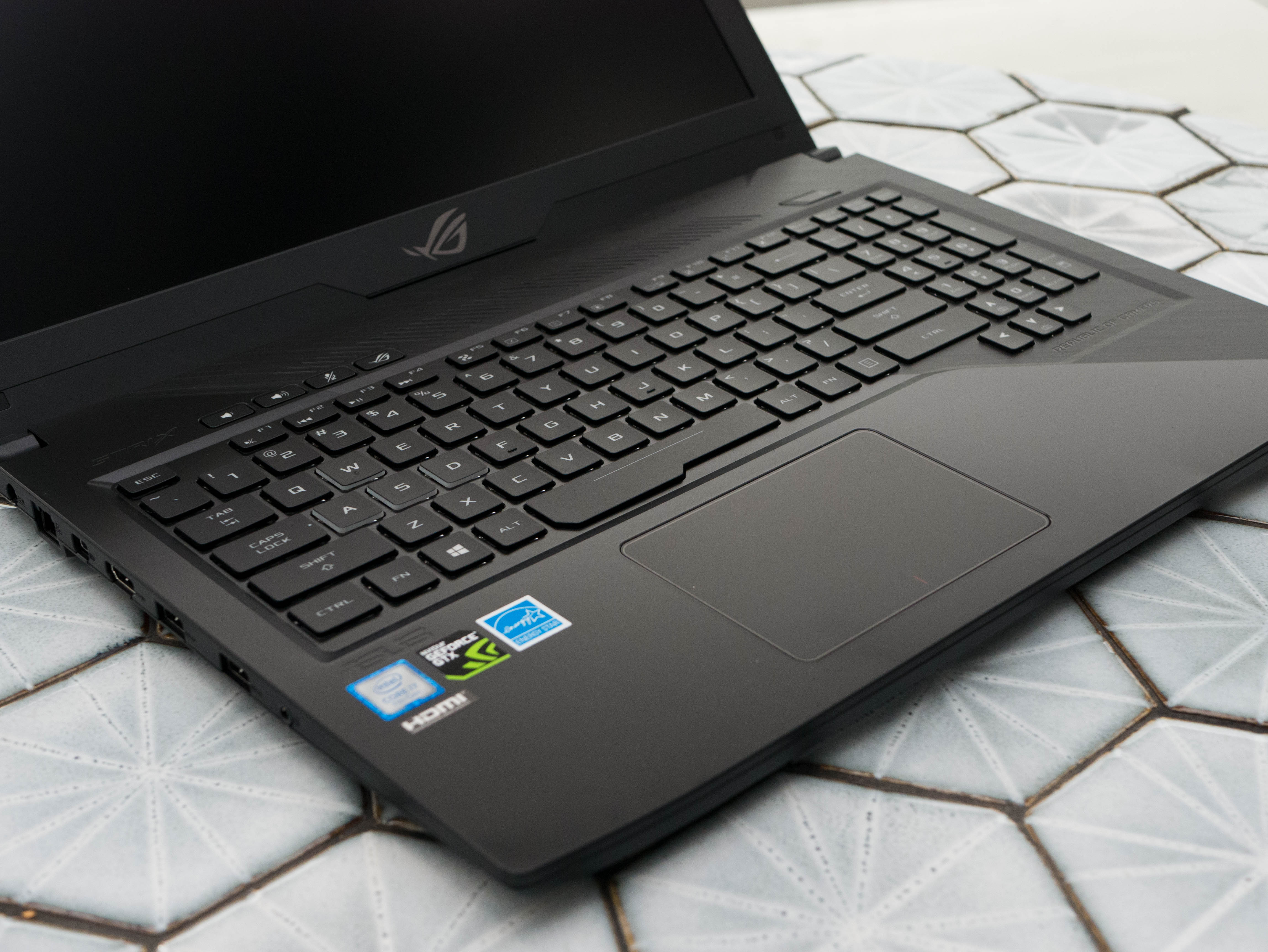
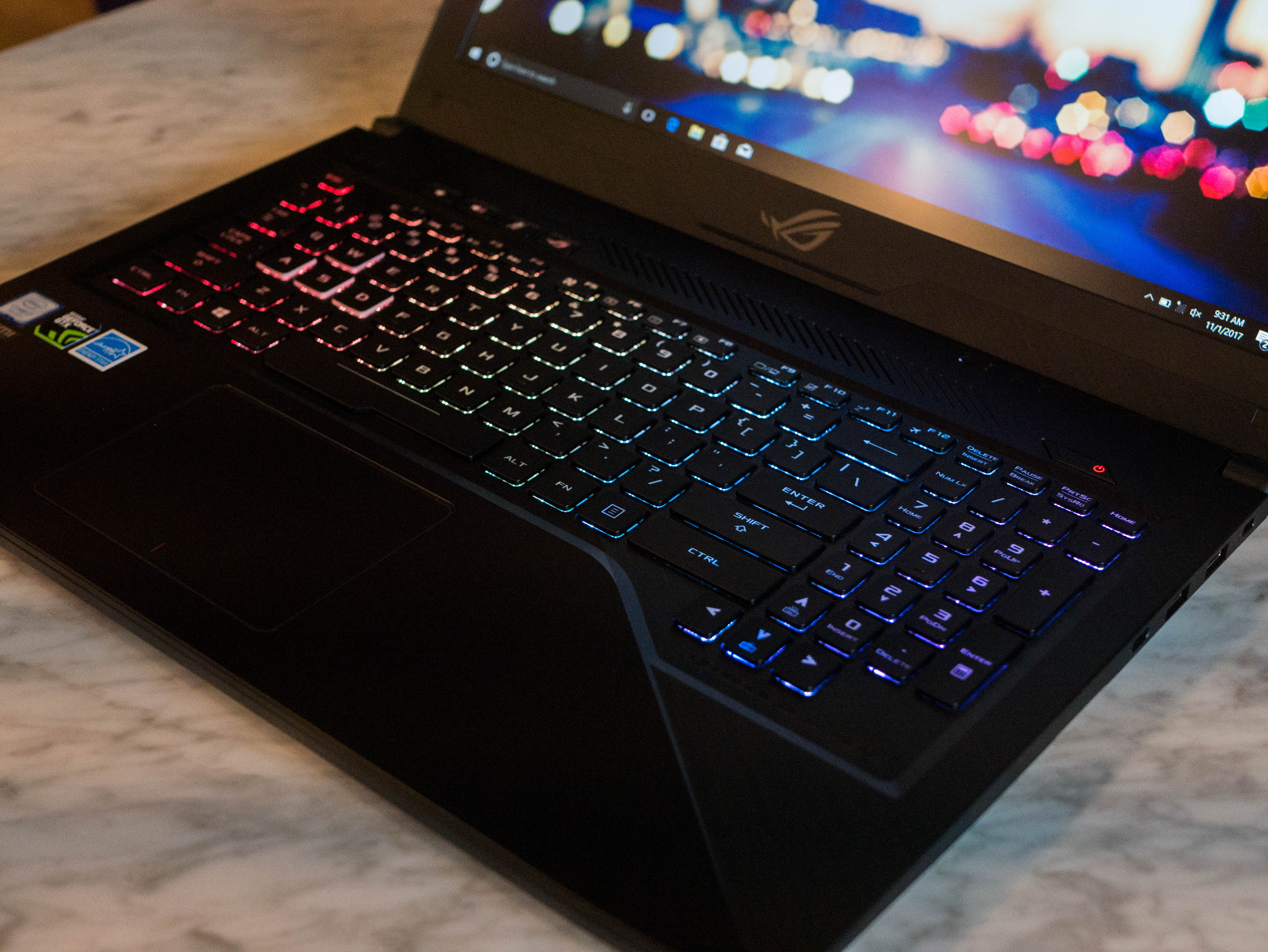
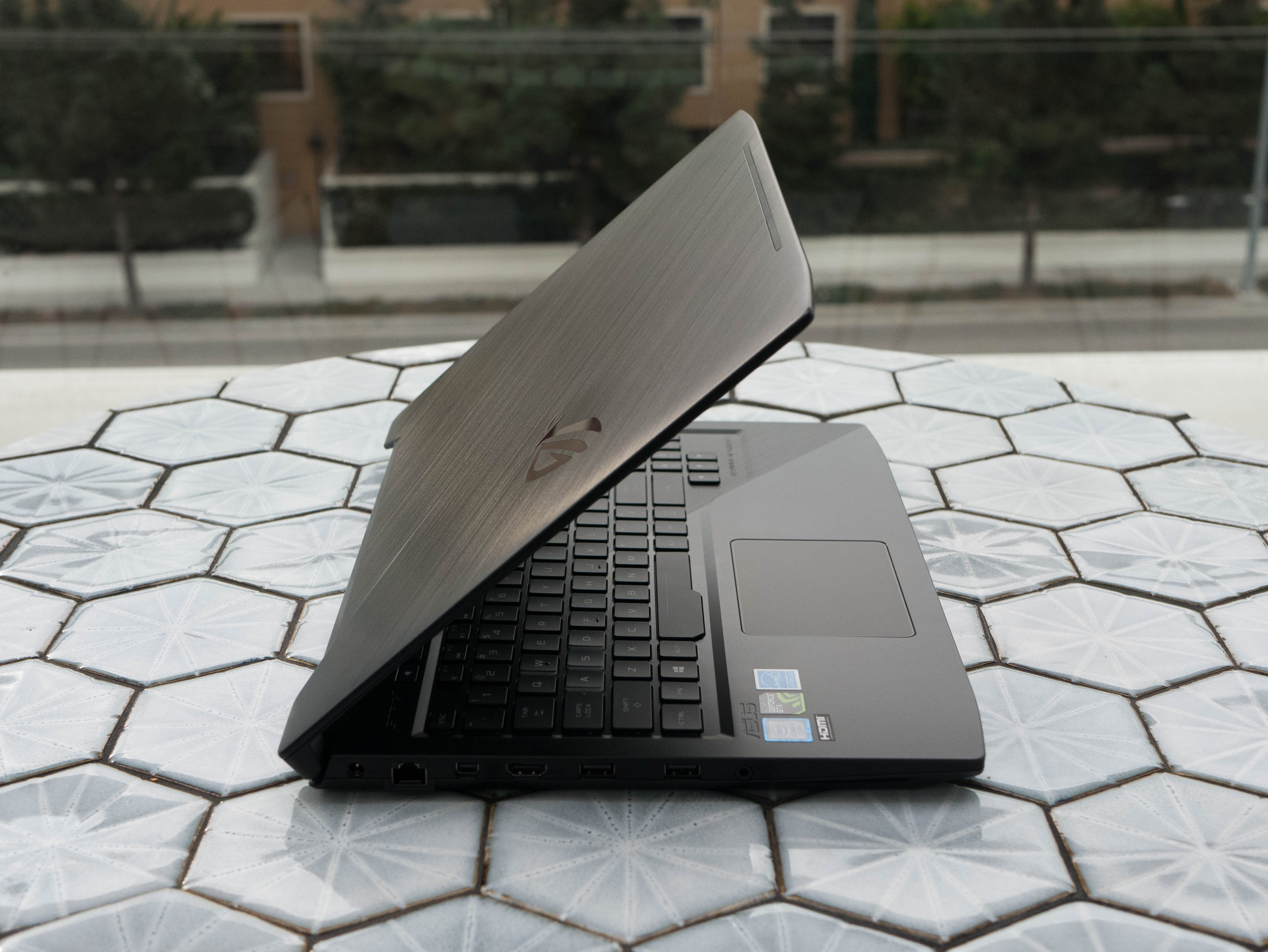
The GTX 1080 with Max-Q design proved its worth in our gaming tests, which helped the Zephyrus deliver similar performance to the Tornado F5, despite the latter having a more powerful CPU. The Zephyrus performed notably well in Ashes of the Singularityand Rise of the Tomb Raider, and although it never reached an average of 60 FPS in either game, it came well within range, so you can dial back the settings in either of these games without major losses in quality. This type of performance is to be expected out of a GTX 1080-based laptop, but we never imagined seeing it come from a laptop this small.
A good gaming laptop needs great battery life to remain competitive, and vendors respond to these needs by either cramming larger batteries in their laptops, lowering the specifications, or some combination of the two. The Strix's 64Wh battery gives players approximately 1 hour and 40 minutes of game time, which is quite lengthy. The Dell Inspiron and Acer Aspire both outlast the Strix, but are capable of such feats because their Core i5s consume less power. The Sager comes close to the Strix, but its slightly smaller battery and power-hungrier GTX 1050 Ti prevent its win. Finally, Acer's Helios falls far short of the Strix because its pitifully small 48Wh battery simply couldn't meet the GTX 1060's demands.
Asus' laptop cooling solutions always deliver top-notch temperatures, and the updated Strix is no exception. The combination of adequate cooling and a power-efficient GPU such as the GTX 1050 produces safe operating temperature of 65° C. However, the competition delivers similar temperatures; the Inspiron has a maximum temperature of 65° C, same as the Strix, but does so with a Core i5 and a GTX 1050 Ti. Always trade-offs! The Acer Aspire runs much cooler at maximum of 57° C with its Core i5 and GTX 1050. However, the Helios outdoes the Strix once again with a cooler maximum temperature of 62° C, despite having a stronger GTX 1060.
The Strix's display leaves much to be desired, unfortunately. It exhibits good contrasts, but it lacks in most other regards. The RGB balance slowly shifts blue as brightness is raised, and the grayscale accuracy plummets past 50% brightness. Additionally, the display's gamma is too high from 0 to about 35% brightness, and too low from then on. The Strix maintains the highest color accuracy out of the laptops in this competitive set, but a DeltaE 2000 of 4.832 isn't ideal if you need a laptop for color work.
Adopting a design philosophy similar to the Asus ROG Zephyrus is an excellent decision, as the previous ROG Strix featured a rather aggressive design and color scheme, which might not appeal to a wide audience. The updated model maintains a mostly black color scheme, but adds a crisp, angular aesthetic only interrupted by tastefully placed patches of red. It will look nondescript enough in a coffee shop.
Get Tom's Hardware's best news and in-depth reviews, straight to your inbox.
Our primary concern with the Strix is its prohibitive price of $1,100. Put simply, it's too expensive for the performance it offers. By comparison, the Acer Predator Helios 300, which delivers close to double the Strix's performance in some cases, cost only $1,140 at the time of writing this review. The only reason we think the Strix is priced poorly in relation to the Helios is because while the build quality and special features (such as the RGB keyboard) set it apart, we don't think they are enough to justify a much weaker GTX 1050. Meanwhile, the Dell Inspiron 15 Gaming 7000 and Acer Aspire VX 15, priced at $750 and $800 respectively, offer similar performance. The Inspiron outperforms the Strix in GPU-reliant titles, while the Aspire slightly underperforms the Strix in platform-based workloads, but at a fraction of the price.
Adding insult to injury, you can find the Sager NP6852 with 8GB of memory on XoticPC for as low as $900. (A 16GB model will set you back by about $1,000.) If Asus wants the ROG Strix GL503VD to be a serious value contender, it will need to reduce the price by $100 to $200.
MORE: Best Gaming Laptops
MORE: Gaming Laptop Previews
MORE: All Laptop Content
-
Martell1977 This is an odd machine. I have the FX502VM and it only takes a 180w powersupply. It has the 1060 3gb in it and a i5-6300HQ. I can't imagine why this laptop with a weaker GPU would need 240w. Wouldn't think a newer gen i7 would take so much more juice. The rest of my hardware is comparable, 16gb DDR4, I added a M.2 SSD and run it along side the 7200rpm HDD, I swapped out my TN panel for a PLS.Reply
Plus, I'm a bit surprised that they are still using the 7700 and not the 8700. It's not like the CPU's haven't been out for a bit now. Maybe an issue with the supplies from Intel.
Can't wait to see what ASUS comes up with using Ryzen and Vega. -
AgentLozen ReplyMartell1977 said:Plus, I'm a bit surprised that they are still using the 7700 and not the 8700. It's not like the CPU's haven't been out for a bit now. Maybe an issue with the supplies from Intel
According to Wikipedia, Kaby Lake R mobile processor that best replaces the 7700HQ was supposed to launch in Q4 of 2017. The Asus ROG Strix that we looked at today may have been in development while the 7700HQ was still the best choice. Alternatively, your explanation of supply makes sense too. -
cryoburner I don't really get the point of running the gaming benchmarks at settings no one would actually use with these laptops. Half the benchmarks have all the similar systems performing below 30fps at ultra settings. That's not particularly meaningful data, since it's only putting load on the graphics card, and not telling much about how the CPU or other components contribute to performance. It won't tell anyone interested in these laptops much about what actual gaming performance will be like either. Seven out of ten of the benchmarks have the games averaging around 30fps or below, while most of those potentially using one of these laptops would likely drop settings to medium or high to maintain frame rates closer to 60fps.Reply
As far as I know, 8th-gen mobile processors comparable to a 7700HQ are not yet available. And considering that gaming on these systems is going to be limited more by GPU performance anyway, it might be a bit of a waste to put something faster or with more cores in them, and it probably wouldn't be good for battery life to add more cores either, considering Coffee Lake is still on the same 14nm node that Intel has been using for the last 3 years.20748758 said:Plus, I'm a bit surprised that they are still using the 7700 and not the 8700. It's not like the CPU's haven't been out for a bit now. Maybe an issue with the supplies from Intel. -
Non-Euclidean "The top of the box has a plastic carrying handle, which makes transporting the laptop easy."Reply
Please tell us who goes around transporting their $1K+ laptop in $1.00+ plastic & cardboard box it comes in...
Better yet, who even thinks there are people doing that? -
Ninjawithagun Horrible price-to-performance ratio. This laptop should cost at most $799 MSRP. Won't be long before you see it 'on clearance' for about that price or lower. Yet another failure by the Asus sales marketing division.Reply -
daglesj Those encased batteries are a great way for us IT guys to make money. I get so many 'dead laptops' in and in 95% of cases it just needs the battery disconnecting, press the power button, reconnect and bingo...working laptop.Reply -
AgentLozen Replydaglesj said:Those encased batteries are a great way for us IT guys to make money. I get so many 'dead laptops' in and in 95% of cases it just needs the battery disconnecting, press the power button, reconnect and bingo...working laptop.
I experienced that same problem when I was troubleshooting a laptop a little while ago. I would prefer that the battery be accessible from the outside of the laptop. -
logainofhades That price and only a 1050? That is just nuts, when I can get an Acer predator with a 1060 6gb for a similar price. As much as I like Asus laptops, this one is a pass for me. Price/performance is horrible.Reply
https://www.amazon.com/dp/B06Y4GZS9C/_encoding=UTF8?coliid=I1Z05M3SEW5N6I&colid=DNBZ6QXOJO3R&psc=1